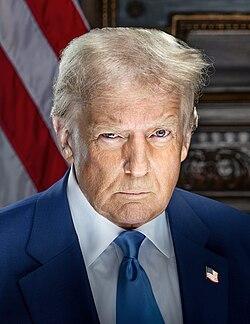Examining Donald Trump’s Business Interests and Their Influence on Middle Eastern Relations
As the dynamics of the Middle East shift, the extensive business connections and personal investments of former President Donald Trump have surfaced as a major concern. His intricate web of financial interests, closely linked to his diplomatic initiatives, raises significant questions about the integrity of U.S. foreign policy during his tenure and its enduring effects. This article explores Trump’s complex relationships in the Middle East, investigating how his commercial activities may have swayed critical decisions impacting American relations with various nations and regional stability. From profitable real estate projects to collaborations with international partners, the potential for compromised diplomacy is alarming and necessitates a thorough examination of how power, profit, and policy intersect in this tension-filled area.
Trump’s Business Influence on U.S. Foreign Policy in the Middle East
Donald Trump’s vast business experience coincided with pivotal moments in U.S. foreign policy, especially concerning the unstable region of the Middle East. His real estate ventures and branding efforts in nations such as Saudi Arabia and the United Arab Emirates have sparked considerable debate regarding possible conflicts of interest. The overlap between his commercial pursuits and political actions has left many experts questioning whether certain countries were eager to embrace Trump’s brand due to these ties rather than genuine diplomatic intentions. Significant events like relocating the U.S. embassy to Jerusalem or fostering normalization agreements between Israel and several Arab states were interpreted not only as shifts in diplomatic strategy but also potentially beneficial moves for Trump’s financial portfolio.
The relationships fostered during his presidency often blurred distinctions between diplomacy and commerce. The involvement of Trump’s businesses in real estate developments across this region poses challenges to maintaining an unbiased U.S. foreign policy stance. Critics contend that economic motivations could overshadow strategic partnerships essential for addressing key issues such as:
- Military Alliances: Sustaining partnerships with nations that bolster U.S military objectives.
- Trade Relations: Collaborating with countries to secure advantageous economic agreements.
- Human Rights Advocacy: Balancing commercial interests against promoting human rights within authoritarian regimes.
The Interplay Between Personal Gain and Diplomatic Strategy
The fusion of personal ambitions with political strategies has long been a fundamental aspect of diplomacy; however, Donald Trump’s case presents particularly concerning implications regarding his business dealings within the Middle East context. Detractors argue that Trump’s financial investments alongside unwavering support for select allies illustrate a troubling intersection where power meets profit motives—raising doubts about whether national interests or personal benefits drive decision-making processes related to foreign affairs.
The repercussions stemming from these conflicts extend beyond ethical considerations; they bear significant consequences for global stability as well:
- Pursuit of Controversial Policies: Supporting Israeli settlements which many believe undermine peace negotiations.
- Economic Consequences: Potential clashes with other governments over business dealings that could jeopardize America’s diplomatic standing.
- Diminished Trust Levels:Erosion of credibility among regional allies complicating future negotiations.
| Description | Potential Consequences |
|---|---|
| Real estate holdings in Israel | Dilution of neutral diplomatic posture |
| Ties with Saudi Arabian businesses | Bias towards military cooperation based on economic ties |
Tackling ethical dilemmas inherent within American engagements across the Middle East necessitates a comprehensive strategy emphasizing transparency alongside accountability measures.
This includes instituting stringent conflict-of-interest regulations, ensuring policymakers remain uninfluenced by their private financial stakes through independent oversight committees tasked with reviewing officials’ interests related to foreign policies.
Additionally,a requirement for public disclosure regarding any relevant financial assets, particularly those tied directly or indirectly into international relations should be enforced.
Such openness would deter profit-driven motives from dictating America’s approach toward global affairs while promoting fairer practices throughout international interactions.
Furthermore,a focus on fostering dialogue, rather than resorting solely towards military interventions can alleviate ethical concerns surrounding resource distribution along civilian impacts.
Efforts should prioritize building robust partnerships through collaborative initiatives aimed at cultural exchange alongside economic cooperation—ultimately enhancing trust levels while preventing exploitation within local contexts.
Lastly,a commitment towards prioritizing human rights advocacy, integrated into all aspects involving military assistance or fiscal support must be upheld—ensuring alignment between actions taken abroad aligns closely alongside core values espoused domestically.
By adopting these measures effectively moving forward will help cultivate an equitable environment conducive toward sustainable progress benefiting all stakeholders involved.
Conclusion: Navigating Complexities Ahead
In summary, Donald Trump’s entanglements within Middle Eastern affairs reveal intricate layers encompassing political maneuvering intertwined deeply amidst economic incentives raising vital inquiries surrounding accountability standards upheld throughout governance structures today.
As investigations persist coupled alongside evolving geopolitical landscapes it remains crucial both legislators along citizens alike maintain vigilant scrutiny over these associations moving forward ultimately shaping narratives around responsible leadership going forth into future decades ahead!









